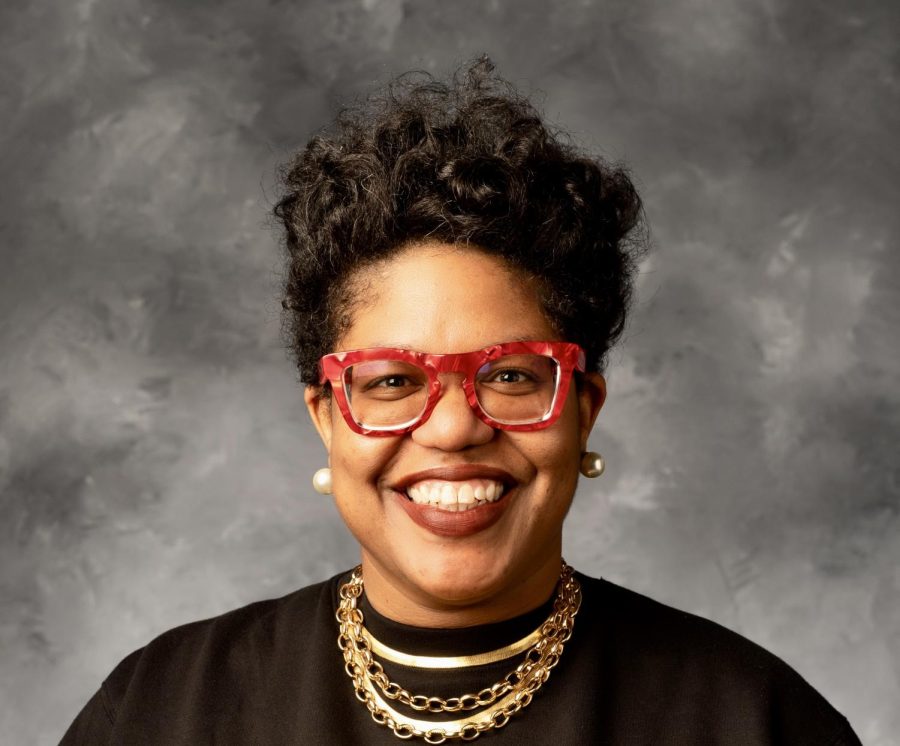UI assistant professor writes book about Black Joy in early American History
UI assistant professor Dr. Tara Bynum wrote her book Reading Pleasures: Everyday Black Living in Early America, a book that highlights the stories and works from Black writers of the 18th and 19th century America.
American history classes teach students about the struggles experienced by Black Americans before and after the Civil War. An English assistant professor at the University of Iowa wants to shed light on Black writers and the joy they recorded.
Tara Bynum recently released her book “Reading Pleasures: Everyday Black Living in Early America,” which honors the early Black American authors from the 18th and 19th centuries. These authors include Phillis Wheatley, David Walker, and ministers John Marrant and James Albert Ukawsaw Gronniosaw.
The four writers and their works depict happiness within Black communities while living under the shadow of pre-Civil War slavery.
“Part of being human is to live with the paradox,” Bynum said. “And the paradox is that sometimes day-to-day life is difficult, and there’s still space for laughter, and the reality is that laughter.”
“Reading Pleasures” is part of a larger project that’s still in progress but has the goal of exploring how Black communities shaped the U.S. in the New England region and beyond.
Bynum said it’s important to know that people of any time and place have whole lives they live, but writings that only focus on strife can give the impression there was no joy to be had.
“I use the example of an old friend that I have. We’ve been friends for decades now since I’ve known her since the first grade,” Bynum said. “If someone was to, 300 years from now, look at our text messages and decide that the only thing that we were concerned about was police brutality, systemic oppression in the form of racism, sexism, I think that they would miss a lot of what we were communicating to one another.”
RELATED: UI student performs drag for the first time to explore gender
Loren Glass, the chair of the English department at the UI, said he and the rest of the department are proud to see her book in print.
“[COVID-19] was a challenge for all of us, but let me say that Dr. Bynum rose to the challenges quite effectively. She was a great teacher remotely and continues to be so,” Glass said. “We do have people working in early American [studies], but she’s the first person we’ve hired in a while working in early African American Studies.”
Bynum lived through both the AIDS epidemic and the COVID-19 pandemic and experienced the struggles of everyone’s lives. Even though something terrible is happening, it does not kill the ability to be happy, Bynum said.
“The line of Black people before me figured out how to keep living,” Bynum said. “In doing that, there are these moments of joy and friendship and community.”
In Bynum’s book, she discusses the letters between Wheatley and her friend Obour Tanner, which was a correspondence between two Black women that lasted through the Revolutionary War.
“That’s what friends do,” Bynum said. “Friends talk to each other, and friends figure out how to kind of keep talking to each other, especially when times get difficult. I think there’s something really cool about that. And then you add the layer that they are Black women who are enslaved at times.”
Bynum said the letters between the two women show a more mundane side to history that often gets overlooked. Wheatley wasn’t just a poet who lived in the 18th century, she was a woman who had a life of her own. This is the sort of aspect Bynum said she wants to show in her work —the humanity of Black people of the past to connect with them as people.
“I think it is a way to remember that they are two teenagers and 20-somethings,” Bynum said. “They kind of figure out how to navigate their world, and then it’s true for Black women in the 18th century, the 19th century, the 20th century, and the 21st century.”
Bynum has taught African American studies at the UI since she arrived at the university in 2020. She said it’s clear that stories about African Americans aren’t being taught as much as they should be.
“I think the biggest one is this heavy assumption that Black people aren’t doing anything before,” Bynum said. “Part of the book is born out of just wanting to speak to the fact that Black people have been thinking about themselves, thinking about each other, thinking about what matters to them.”
Glass said he hoped bringing Bynum into the department would spotlight early Black American studies.
“It’s great to have someone as part of this focus on Black joy and Black pleasure,” Glass said. “She’s part of a larger movement in African American studies, really making that emphasis in that.”
While her work focuses on joy, Bynum said that there’s still room for doom and gloom in any story worth telling.
“Because this is the question I often ask in my class or to bring up this point — increasingly so. And it’s like, if I put any story in front of you, of any person, there’s going to be tragedy in the story, whether it’s a children’s book or ‘The Odyssey,’ Bynum said. “The thing to remember is that he’s able to turn his day around by the end.”



